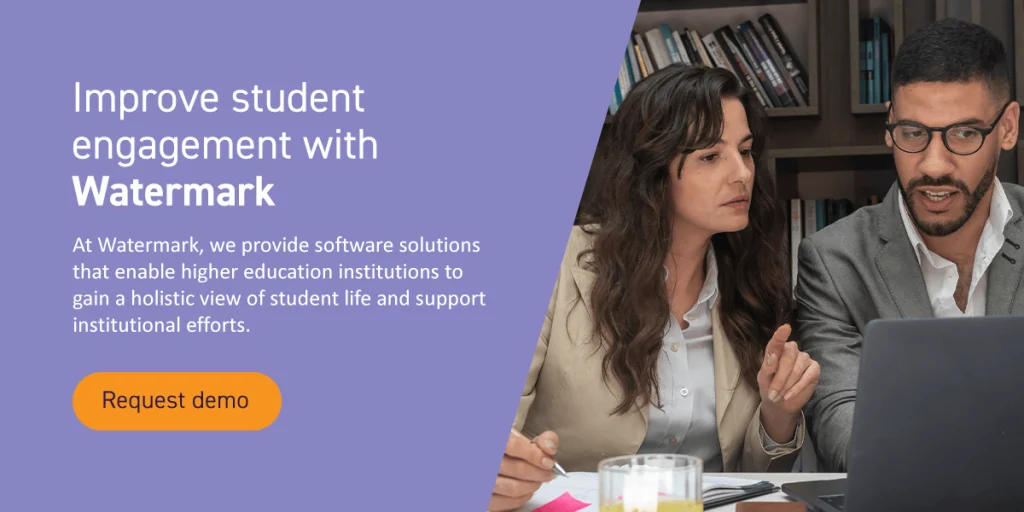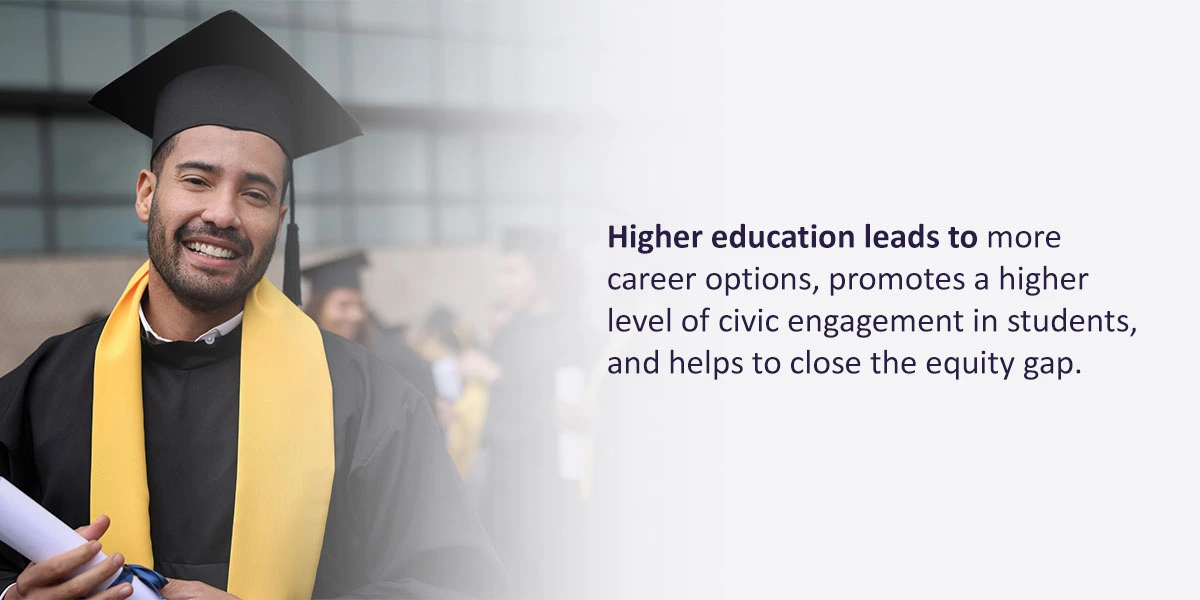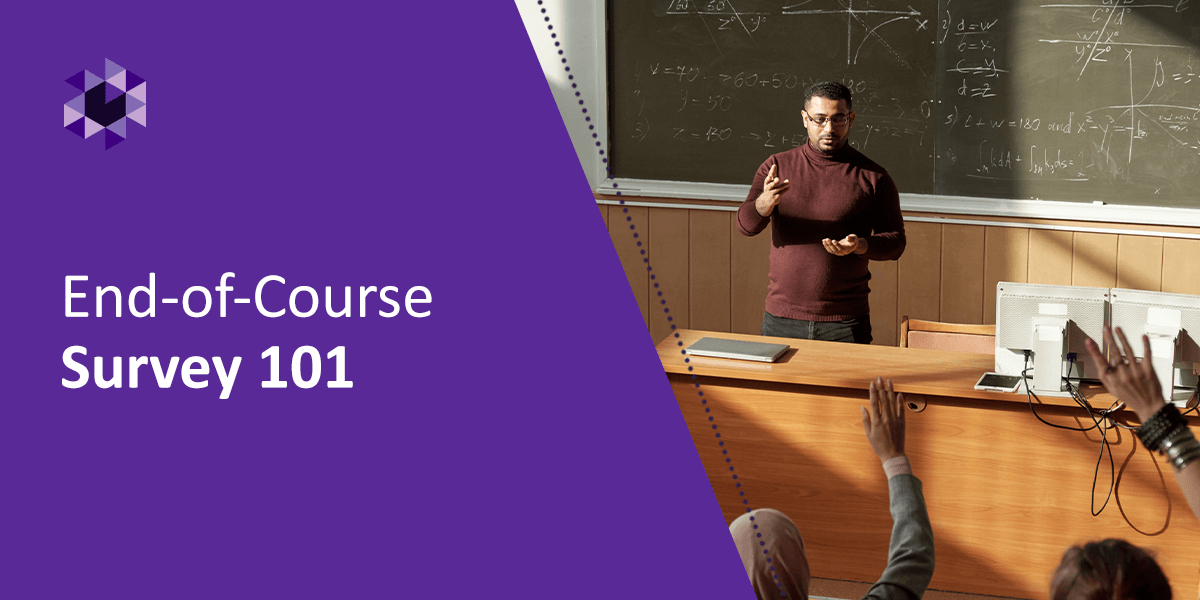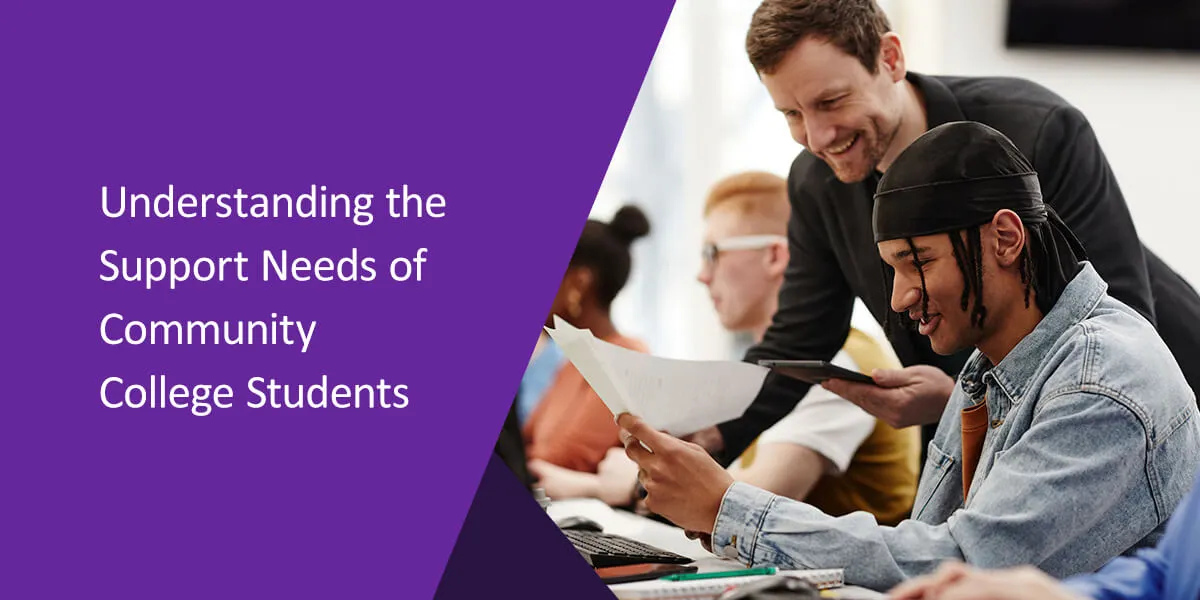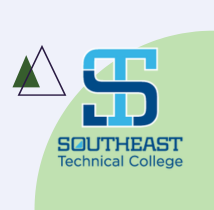



College students face plenty of challenges throughout their education. Mental health, family, jobs, and other priorities can soon become obstacles to completing their degrees. In some cases, this leads to higher dropout rates. Colleges and higher education institutions can curb minority student dropout rates with effective tools that identify at-risk factors.
While academic services are essential to support learners, administrators with a holistic view of student life may help them achieve more successful outcomes. North Carolina community colleges can use innovative platforms with predictive analytics that improve student success and establish best practices.
Watermark has been a proud partner of The North Carolina Community College System (NCCCS) for over a decade, helping administrators identify at-risk students through technology-based support. With a holistic approach, higher education institutions have been able to improve degree completion and student retention with the assistance of several features, such as:
Watermark has implemented these in 42 of the 58 schools in the NCCCS since 2012. Our innovative programs and research, including the Minority Male Success Initiative (MMSI) and our First in the World (FITW) research, have helped technical colleges and two-year community colleges achieve success with improved student outcomes. The MMSI, in particular, aimed to strengthen outcomes for minority male students through improved collaboration and participation throughout various departments and administrations.
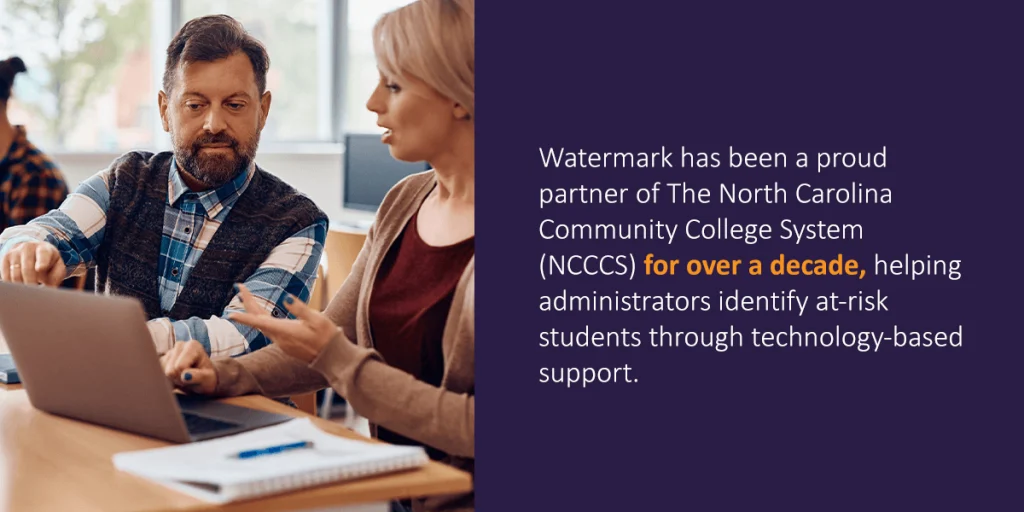
Watermark partnered with 11 NCCCS colleges to implement this program across a three-year period to determine the success of minority male students. With the help of groundbreaking software, Watermark has enabled many North Carolina colleges to track specific at-risk student data so administrators can better identify challenges and meet student needs.
As the first year of the MMSI program partnership ended in 2022, Watermark developed various student risk profiles by analyzing collected data. This data helped colleges understand and interpret the long-term impact of student achievement initiatives on community college campuses. Implementing the MMSI program in its first year resulted in a 1.8 percent increase in course completion and a 1.5 percent increase in persistence for minority male students.
The MMSI program alone suggests colleges and higher education institutions can benefit from supportive software that helps administrators identify at-risk student behavior. First, the results showed that minority male persistence rates were closer to those of White males than noted before the study. This potentially indicates that Watermark Student Success & Engagement software improved administrator’s abilities to identify obstacles preventing student success and develop proactive strategies to address such issues.
Second, the MMSI also resulted in racial and ethnic gaps in course completion. While certain factors may have influenced the remaining gaps, such as online learning during the COVID-19 pandemic, the decrease reflects positively on the use of analysis software to record and track learning outcomes.
The MMSI program results also suggest that success coaching is an effective way to help strengthen perseverance in minority male students to complete their academic programs. By partnering with Watermark and implementing solutions that meet the unique needs of each learning institution, North Carolina colleges were able to successfully track and monitor minority male students and other at-risk groups.
In addition to the MMSI program, Watermark has remained committed to determining the effectiveness of proactive and individualized success coaching in improving student retention across 10 North Carolina community colleges.
The FITW research program combined the following unique elements to determine if these efforts could enable significant student success improvements:
The FITW program found success coaching tends to grow more impactful over time. It also revealed that male students and Black students experience the most significant benefits from coaching. Furthermore, strong institutional support for success coaching and low coach turnover can positively impact student retention and completion rates.
Participating colleges in the FITW research program also benefitted from these results:
At Watermark, we’re devoted to helping NCCCS colleges be able to easily identify at-risk students who may benefit from student success initiatives. We have been grateful for the partnership we have forged with NCCCS and will continue supporting our NCCCS partnerships as they progress.
These results indicate that at-risk students thrive when institutions have access to supportive programs and technology. With such software, administrators may have more control over managing, measuring, and analyzing student data to achieve better enrollment and retention outcomes.
When it comes to institutional improvement efforts, community colleges can streamline initiatives with quick reports within a single platform. This enables higher education professionals to understand student needs and effectively target at-risk students by assessing their performance.
As a result, students may feel more supported and empowered to complete their degrees. The results of these research programs suggest that colleges that use educational assessment software can provide better access to data that drives success.
This may also increase communication and transparency between students and professors. Finally, educational assessment software and predictive analysis also provide administrators with tools to support and enable all faculty to overcome data challenges.
As a higher education professional, you can help improve student retention, engagement, and success while meeting your data goals. If you want to become part of the solution for your at-risk students, you can start by ensuring that your institution can meet their needs. This includes collecting, processing, measuring, and analyzing student data to develop insights that lead them toward success.
At Watermark, we provide software solutions that enable higher education institutions to gain a holistic view of student life and support institutional efforts. Our services help higher education decision-makers understand student data more effectively to improve faculty processes and student outcomes. With over 20 years of experience in the higher education industry, you can trust our solutions will enable your institution to create a better environment for students.
To learn more about how our solutions can help you implement personalized student support, request a demo today.
